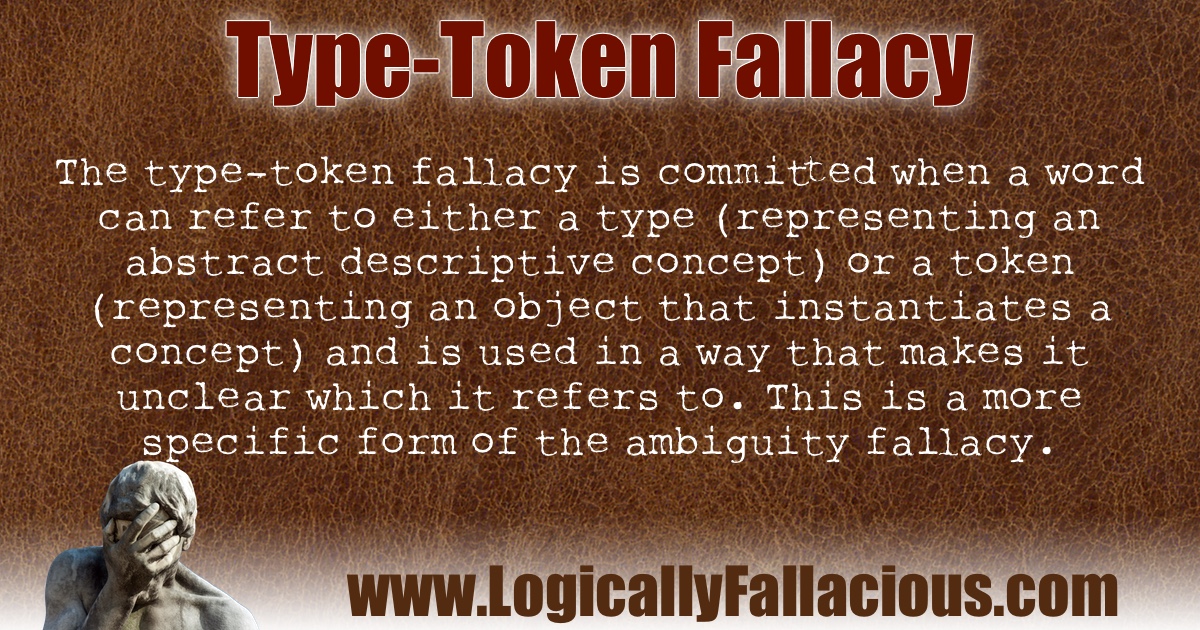Description: The type-token fallacy is committed when a word can refer to either a type (representing an abstract descriptive concept) or a token (representing an object that instantiates a concept) and is used in a way that makes it unclear which it refers to. This is a more specific form of the ambiguity fallacy.
Logical Forms:
Reference to type is made.
Response refers to token.
Reference to token is made.
Response refers to type.
Example #1:
Salesperson: Toyota manufactures like four dozens of cars, so if you don't like this one you can see others.
Prospect: I would have guessed they made closer to millions of cars.
Explanation: The salesperson was referring to the different types of cars (models) Toyota makes, not how many instances (or tokens) of each car were manufactured. By not specifically stating "types of cars" or "models," the statement was ambiguous and unnecessarily confusing.
Example #2:
Greg: I have the same suit as George Clooney.
Tim: Do you guys take turns wearing it?
Explanation: Greg means that he had the same type of suit as George Clooney. Tim was probably being a smart-ass with his response, but in case he wasn’t, he confused the type with the token (that unique suit).
Tip: As always, be as clear in your communication as possible and avoid any unnecessary confusion.

References:
Wetzel, L. (2014). Types and tokens. In E. N. Zalta (Ed.), The Stanford Encyclopedia of Philosophy (Spring 2014). Metaphysics Research Lab, Stanford University. Retrieved from https://plato.stanford.edu/archives/spr2014/entriesypes-tokens/
Questions about this fallacy? Ask our community!